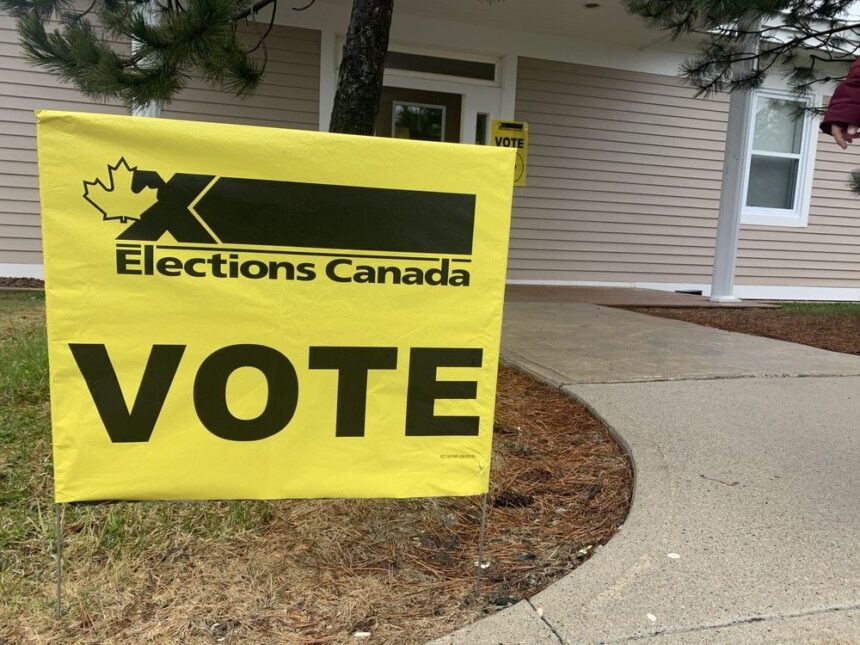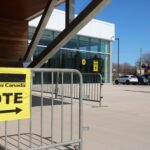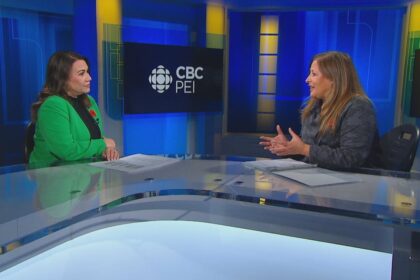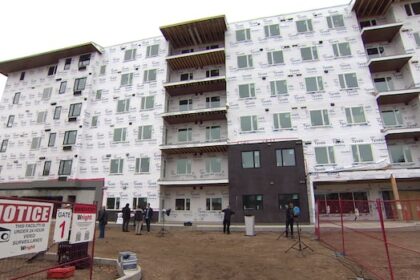Voters ‘uncommonly focused on one national question,’ says MUN political scientist, which led to sharp decline in votes for NDP, BlocPublished Apr 30, 2025 • 4 minute readThe St. John’s Retired Citizens’ Association was one of 177 polling stations in the electoral district of Cape Spear. Photo by Chris Ballard/The TelegramAs the head of Memorial University’s Department of Political Science, it wasn’t exactly uncommon for Scott Matthews’ phone to ring over the last few weeks with a journalist on the other end, struggling to put their finger on the galvanizing election issue facing voters in Newfoundland and Labrador. But as the election results rolled in late Monday night and into Tuesday morning, projecting a Liberal minority government amidst dwindling support for the New Democratic Party and Bloc Québécois, Matthews’ Election Day premonition that he shared with The Telegram on Monday began to ring true. THIS CONTENT IS RESERVED FOR SUBSCRIBERS ONLY.Subscribe now to access this story and more:Unlimited access to the website and appExclusive access to premium content, newsletters and podcastsFull access to the e-Edition app, an electronic replica of the print edition that you can share, download and comment onEnjoy insights and behind-the-scenes analysis from our award-winning journalistsSupport local journalists and the next generation of journalistsSUBSCRIBE TO UNLOCK MORE ARTICLES.Subscribe or sign in to your account to continue your reading experience.Unlimited access to the website and appExclusive access to premium content, newsletters and podcastsFull access to the e-Edition app, an electronic replica of the print edition that you can share, download and comment onEnjoy insights and behind-the-scenes analysis from our award-winning journalistsSupport local journalists and the next generation of journalistsRegister to unlock more articles.Create an account or sign in to continue your reading experience.Access additional stories every monthShare your thoughts and join the conversation in our commenting communityGet email updates from your favourite authorsSign In or Create an AccountorArticle contentIt wasn’t a unifying local or regional issue that sent voters to polling stations in droves across Newfoundland and Labrador — it was a single international issue.“It’s been a very nationalizing election campaign with focus on one clear issue: Trump and how to deal with him,” Matthews told The Telegram.“The truth is, I think this election has been uncommonly focused on one national question, which is, ‘Which party and which leader is the strongest, most credible bet to safeguard Canada’s economic future and maybe our future as a sovereign country in the face of Donald Trump’s really unprecedented assault on the relationship that we have with the United States?’”‘There hasn’t been a lot of region-specific issues cropping up’Article content Liberal leader Mark Carney and Conservative leader Pierre Poilievre. Photo by PostmediaLocal candidates fighting against local challenges were seen as secondary priorities, as voters largely voted to back the federal party leader they felt was best equipped to handle the country’s diminishing relationship with the United States and the trade war.As a result, the NDP lost official party status after earning victories in just seven of the country’s 343 electoral districts, while the Bloc Quebecois saw its number of seats drop from 32 in the 2021 federal election to just 23 seats in 2025 as voters instead chose sides between the election’s two main combatants.“I read this election as really a national one,” Matthews said. “There hasn’t been a lot of region-specific issues cropping up… This is an election that has focused on the two largest parties. It’s really squeezed out the NDP, and even the Bloc to a certain extent.” Article contentThat doesn’t mean candidates running localized campaigns were meaningless in this election; it’s just that they would have had to stand out in a rather extreme way to pry attention away from one of the largest sovereign and economic threats that Canada has ever faced.“National elections are shaped by attitudes towards the parties and the leaders, and you can usually predict quite a lot just based on that,” Matthews explained.“… Individual candidates matter when they have really distinguished themselves in some very specific way, for good or ill. I don’t know if we have any candidates like that in the province on the ballot this time around.” ‘Hard to compare 2025 to previous elections’ Memorial University political science professor Scott Matthews says the move to remove the requirement for leadership reviews has its upsides and its downsides. DAVID MAHER/THE TELEGRAM Photo by David MaherIf there was to be a solitary unifying local election issue, Matthews’ best bet would have been the oil and energy sectors, but as Justin Trudeau’s Liberals inched closer to the Conservative position in supporting faster development of Canada’s energy sector, Matthews believes the contrast between the two parties weakened, becoming less relevant in the eyes of voters. Article content“I think that issue has been a bit nullified, or largely nullified, by the Liberals sort of sidling up to the Conservatives with commitments to speed along energy projects and speed resources to market,” Matthews said.“The devil may be in the details there. In the long run, the Liberals may present something quite different in government, but certainly the message has been ‘Oh no, we’re keen to make the most of these resources and then do what we can to expedite things’. I don’t think it’s been a big focus, even here in the province where the oil sector is such a significant part of the economy.”Read More BOB WAKEHAM: How strategic voting and anti-Trump sentiment led to Liberal win UPDATED: Razor-thin race for Terra Nova-The Peninsulas still isn’t over, one poll still outstanding Article contentIn Matthews’ eyes, the unifying national election issue may also be the cause for the 25 per cent increase in electors voting in advance polls. Preliminary figures suggest that upwards of 7.3 million voters submitted their ballots via advance polls, up from 5.8 million advance voters in 2021. “I think that was really quite remarkable,” Matthews said.“On the one hand, I’m inclined to say that this reflects an uncommon level of interest in the election, which would be really consistent with the idea that this is an election focused on one issue that everybody understands.”Matthews added that a unified national front against an American trade war is highly unlikely to be the lone reason for a 25 per cent advance voter uptick, and suggests that lingering pandemic voting behaviour is likely still at play. “It’s a little hard to compare 2025 to previous elections because of what a transformation the COVID pandemic had on how people engage with elections,” Matthews said.“People were making more use of advance voting and early voting by mail and things of that nature. It may be that we have just generally warmed up to that, and so, more people who might have otherwise come out on election day are just more likely to turn out in advance.”Article content
How did we get here? Why local issues took a back seat in the 2025 federal election











